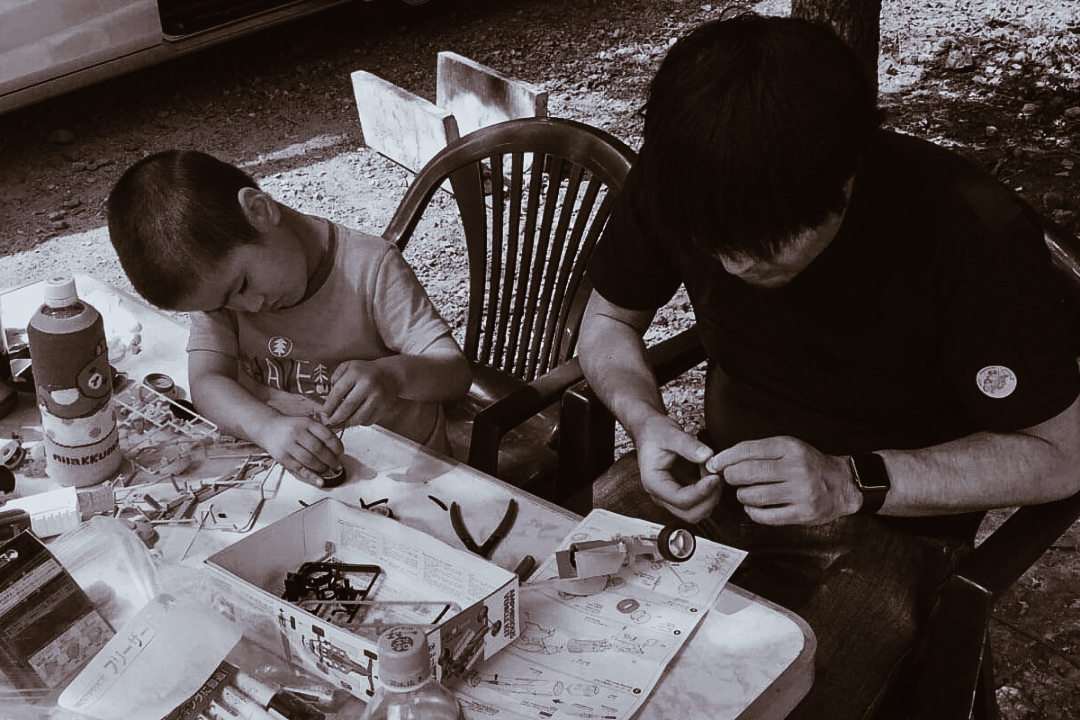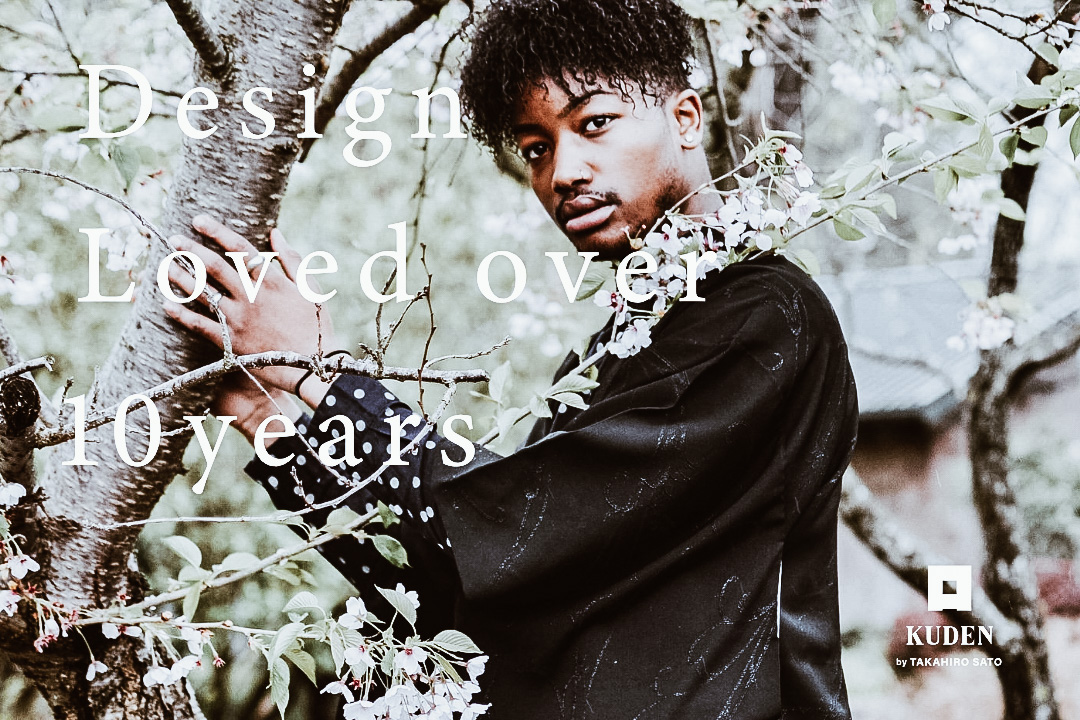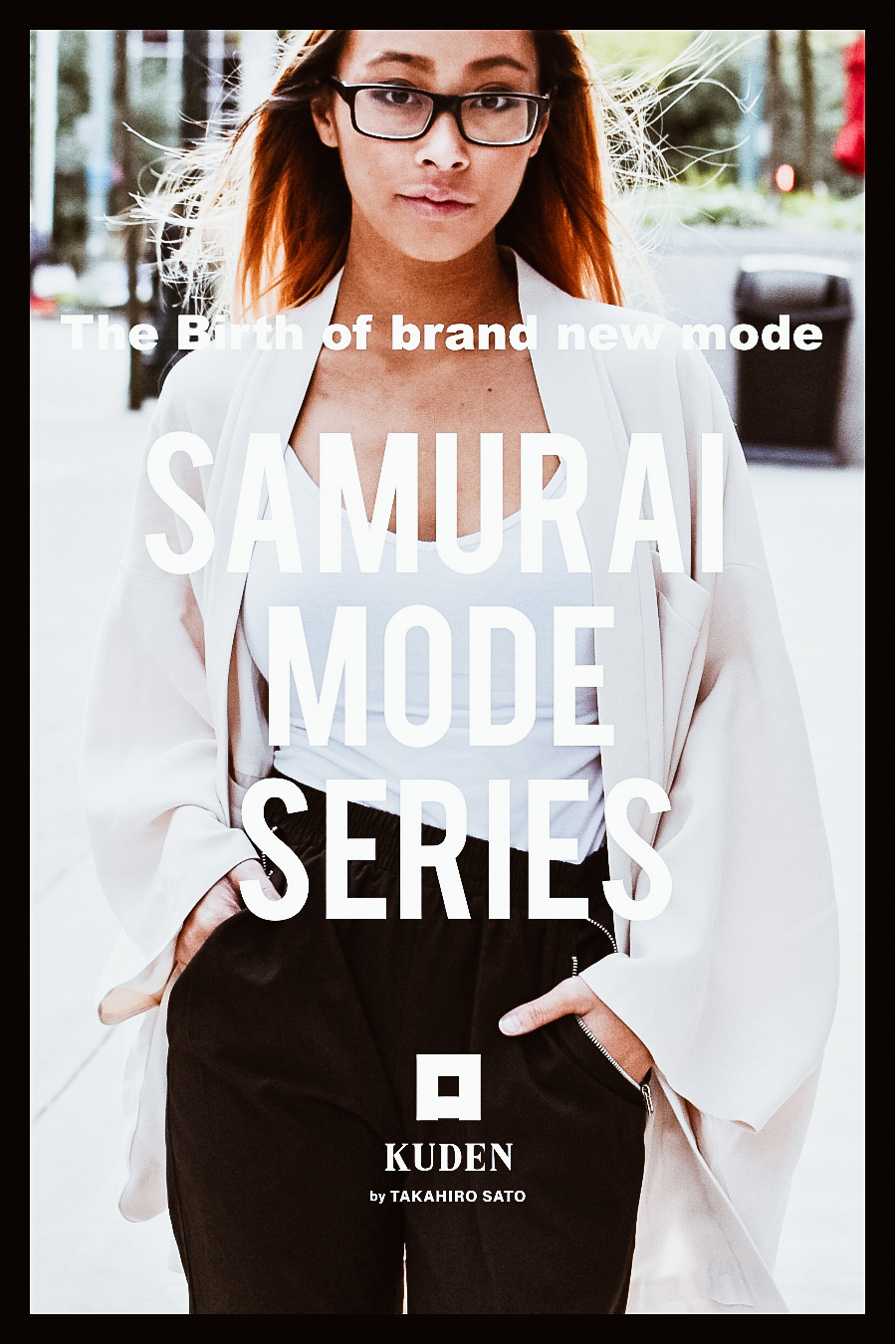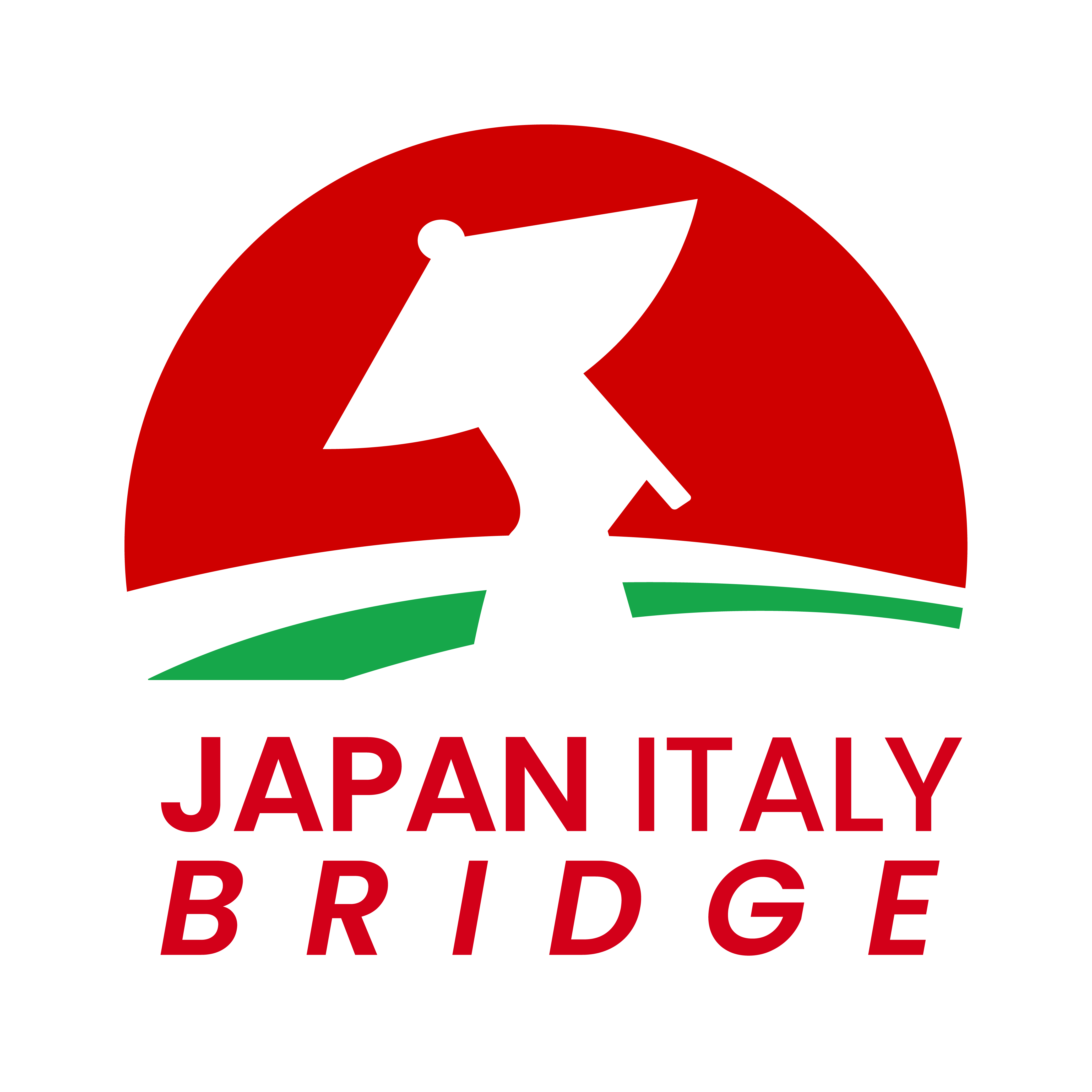Japan Italy Bridge interviews: KUDEN – Part 1
Siamo lieti di dare il via alla nostra iniziativa “Japan Italy Bridge interviews”, che introduce nel mondo aziende giapponesi uniche nel loro genere, con un’intervista speciale al CEO di Gerbera Design Inc., Takahiro Sato.
Gerbera Design Inc. è la società dietro il marchio di moda KUDEN di TAKAHIRO SATO che ha gestito la massiccia campagna Kickstarter per la sua giacca Samurai Mode. La campagna ha avuto un tale successo che è stata finanziata per oltre il 1000% del suo obiettivo originale e ha raccolto molta attenzione da vari media in tutto il mondo. In questa occasione, ci è stata data l’opportunità di parlare con l’uomo dietro questo grande successo per saperne di più sulla sua storia, il futuro del suo marchio e le sue riflessioni sul Giappone e l’Italia.


ーー Per iniziare, presenta te stesso e la tua azienda.
Ciao. Sono Takahiro Sato, il designer di KUDEN di TAKAHIRO SATO (di seguito, KUDEN) e il CEO di Gerbera Design Inc. (qui sotto, Gerbera Design). Potete chiamarmi Tak.
Utilizzando l’esperienza che ho acquisito attraverso la perdita di un precedente business e i miei anni di gestione di un’attività nel settore dell’intrattenimento cimentandomi in giochi e giocattoli, ho avviato Gerbera Design, una società che fornisce servizi di consulenza a nuove imprese producendo anche lavori creativi come parte delle nostre operazioni.
Con la speranza di poter creare un luogo in cui poter lavorare in futuro insieme a mio figlio, che ha autismo e lieve disabilità intellettiva, ho lanciato il marchio di abbigliamento, KUDEN, sotto la guida di Gerbera Design come nuovo business con cui raggiungere un mercato internazionale.
ーー Cosa ti ha spinto a iniziare questa attività?
L’inizio dei miei sforzi imprenditoriali nel 2007 è stata la prima volta nel cominciare un’attività. Era una società di design di cui ero proprietario. A quel tempo, si scoprì che entrambi i miei genitori avevano il cancro e dal momento che dovevo prendermi cura di loro, io, che lavoravo in un grande gruppo aziendale nel settore dei giocattoli e videogame, lasciai il mio lavoro e iniziai il mio viaggio come imprenditore
Nonostante il duro lavoro che ho svolto con la società di progettazione che ho gestito, la società è crollata e il business è stato chiuso. Allora, ero un uomo d’affari terribile che causava problemi al mio personale e ai miei clienti e finivo persino per vivere lontano dalla famiglia che amo.
Ciò che mi ha convinto a provare di nuovo come uomo d’affari, io che ero una persona che aveva incontrato un fallimento così grande, è stato il desiderio di creare un luogo in cui poter, in futuro, lavorare insieme a mio figlio che è affetto da autismo autismo e ha una lieve disabilità intellettiva, dal quale io sono al momento separato. Tuttavia, ritengo che le attuali operazioni di Gerbera Design nella consulenza manageriale e nel business creativo non siano attività idonee per impiegare le persone con disabilità. E così, continuo a cercare nuove vie di business.
Durante la mia ricerca per un nuovo business, ho iniziato a pensare a cosa serve per il futuro e cosa posso fare come designer per realizzarlo. Come designer, ho a cuore le cose che uso e mi prendo cura di loro. Personalmente amo i progetti di lunga vita, e quando ho pensato di voler avviare un’attività che porta tali disegni nel mondo, ho trovato il kimono che apparteneva alla mia defunta madre. Guardandolo, sono stato ispirato e ho ritenuto che sarebbe stato interessante ristabilire e ridefinire il kimono in maniera moderna, progettare qualcosa che avrebbe fatto dire alle persone “voglio indossarlo”. Questa è la scintilla che ha dato vita alla serie di modelli Samurai. Questi vestiti sono stati poi commercializzati nel mondo con il marchio KUDEN di TAKAHIRO SATO.


Il motivo per cui ho ampliato il marchio con il mercato internazionale come obiettivo principale è che desideravo creare un luogo in cui mio figlio disabile potesse lavorare con me, e quindi ho creato una strategia per creare un’azienda in cui le persone disabili possano lavorare ed essere assunti.
Considerando che il Giappone ha problemi come il suo tasso di natalità in declino e l’economia non sana, dubito che il sostegno a persone portatrici di handicap come mio figlio possa andare meglio in futuro. Anche per le persone normodotate come me, le difficoltà sono all’orizzonte poiché si parla che il governo non sarà in grado di mantenere la nostra pensione e la sicurezza sociale.
Tenendo tutto ciò a mente, non posso solo concentrarmi sul mercato locale e quindi devo rendere redditizia l’azienda con una base di clienti all’estero. Altrimenti, anche i dipendenti delle nuove generazioni che assumeremo dovranno alla fine essere lasciati andare. Per evitare che ciò accada, ho creato questo business sin dall’inizio, dalla sua fase di avvio, con particolare attenzione al mercato globale.
Ho ancora molta strada da fare, ma poiché questa è l’unica promessa che ho fatto a mio figlio, la realizzerò sicuramente prima che il mio tempo scada.
ーー A cosa presti particolare attenzione nella gestione di questa attività?
Come qualcuno che ha chiuso una volta un’attività, l’unica convinzione che tengo a mente quando riprovo ad essere un imprenditore è quella di essere “un manager che apprezza molto le persone”, che si tratti del mio personale, dei miei clienti o dei miei partner e collaboratori. Questo è uno sforzo continuo che mantiene la felicità dei miei stakeholder e pone la continuità a lungo termine dell’azienda anzichè concentrarsi su risultati o guadagni a breve termine. Ciò, inoltre, dimostra la mia determinazione e la ferma volontà di portare felicità alle persone socialmente svantaggiate, come le persone disabili e gli anziani, attraverso l’occupazione e il commercio.
La ragione dietro a queste mie convinzioni sono le esperienze amare che ho avuto. Il lungo orario di lavoro è diventato un problema sociale nell’attuale Giappone e anch’io ho vissuto un periodo di lavoro eccessivo al punto di crollare e perdere la mia società. Ho anche sperimentato la realtà della mia ex-moglie che ha chiesto il divorzio a causa dei tempi difficili che le ho fatto passare, dovendo quindi vivere separato da mio figlio, ma non avrei dovuto lasciare che le cose accadessero in questo modo. Anche se lavoravo per il bene della mia famiglia e dei miei dipendenti, ho finito per perdere tutto. Il rimpianto pesa su di me. Non desidero che il mio staff e i miei clienti provino il dolore di distruggere la loro salute e di perdere la loro famiglia a causa del troppo lavoro. Sulla base di questi sentimenti e della mia esperienza con la mia precedente azienda, ho corretto le cose e applicato nuovi metodi di lavoro e di funzionamento.

La mia azienda opera in una settimana lavorativa di 4 giorni che consente 3 giorni di riposo continui in una settimana se possiamo completare il nostro lavoro. Usando questi giorni di riposo, ci sono membri della mia società che sono padri che, per la prima volta, possono trovare il tempo da trascorrere con i loro figli. Ci sono anche altri che possono visitare Disneyland con i loro partner ogni venerdì, che prendono lezioni durante i fine settimana per lavorare al loro sogno di diventare un doppiatore, e ci sono quelli che, come me, vivono a parte i loro figli disabili, che possono adempiere ai bisogni dei loro figli come e quando necessario. Voglio che facciano di più che lavorare. Voglio che vivano e vivano anche la vita. Sto ancora esplorando metodi di funzionamento e guadagno che renderanno questi obiettivi una realtà attraverso prove ed errori. I lavori a contratto sono diffusi nelle società di progettazione e la realizzazione di questi obiettivi ridurrà tali posizioni nella mia azienda, convertendo allo stesso tempo il mio modello di business in uno che fornisce sia servizi di consulenza gestionale che produzione creativa.
Quando mi sono ammalato dopo che la mia precedente azienda ha chiuso, ho pensato a molte cose mentre giacevo in quel letto d’ospedale. Mi sono reso conto che la maggior parte delle nostre vendite è stata generata da pochi clienti che costituivano la percentuale più alta della nostra clientela. Fu allora che decisi che avrei solo dovuto impegnarmi per compiacere i clienti che apprezzano il nostro lavoro e sono felici di pagarlo, cambiando così l’attenzione su come lavoravo e rendendo ciò possibile. Fondamentalmente, i metodi di guadagno che hanno metodi di lavoro eccezionali devono evolvere con i tempi. Altrimenti, non saremo in grado di correggere problemi, come lunghi orari di lavoro, che diventano punti critici. Stiamo facendo piccoli passi, ma continuerò a lavorare con il mio staff per cercare metodi che funzionino.
Il passo successivo è essere “un manager che apprezza molto le persone” e, espandendo la mia nuova attività, KUDEN, ho iniziato con la fabbrica di abbigliamento per connettere gli artigiani con l’impiego di persone disabili e ho accettato la sfida di mandare avanti il business come uno che ha a cuore tutte le parti interessate. Altri possono ridere di me e chiamarmi ingenuo, ma io sono impegnato in questo.
<Materiali di riferimento>
Il miglioramento operativo di Gerbera Design Inc. (in precedenza, Sato Creative Design Office Gerbera) è apparso sulla prima pagina dell’edizione mattutina del Tokyo Shimbun a dicembre 2016 come parte del libro di Yōhei Tsunemi sulle pratiche di business del critico d’autore e di lavoro. Piccole e medie imprese, “なぜ、残業はなくならないのか(祥伝社新書)”.
【探訪 都の企業】
<働き方改革編>(上)出社週4回、8時間勤務 会社の稼ぎ方変える
Esplora: affari in città
Lavorare 4 giorni a settimana, 8 ore al giorno: cambiare il modo in cui la società guadagna
【なぜ、残業はなくならないのか(祥伝社新書) 】
Perché il tempo libero non andrà via? / Naze, Zangyō wa Nakunaranai no ka (Shōdensha Shinsho)

ーー Come pensi che il mercato globale percepisca KUDEN? Inoltre, che tipo di impressione vorresti che il mondo avesse di KUDEN?
Penso che KUDEN non si presenti come un marchio che si trova nella sfera della “moda” per il mercato globale. Invece, KUDEN è amato da persone che sentono che anime, manga, cibo, artigianato, ideologia Zen, arte e altri aspetti culturali del Giappone risuonano con i loro valori personali.
Mentre abbiamo incontrato varie difficoltà durante la vendita in pre-ordine di Samurai Mode Jacket, il mio staff ed io siamo stati profondamente toccati dai numerosi messaggi che abbiamo ricevuto da clienti di tutto il mondo che ci hanno detto come stavano pazientemente aspettando in attesa delle loro giacche. Mi hanno incoraggiato, dicendo che il mio desiderio di lavorare duramente per mio figlio mi rende un “samurai” per loro, tra gli altri messaggi così affettuosi.
Come marchio che non si rivolge solo alle persone che amano i vestiti, l’integrità e la risoluzione che KUDEN possiede è ciò che chiamiamo “essere dignitosi”, e in italiano, lo abbiamo chiamato “vita pensosa”. Sento che questa prospettiva che il nostro marchio ha e il desiderio di collegare la mancanza di artigiani continuativi con l’impiego di persone disabili attraverso il design mi ha permesso di trovare amici gentili e affini in tutto il mondo che condividono la mia visione.
Voglio intensificare i miei sforzi e lavorare di più per non tradire le aspettative di tutte queste persone che sostengono queste visioni e prospettive di KUDEN.
E questa era la prima parte della nostra intervista intima con l’amministratore delegato Takahiro Sato! Cosa ne pensate? Condividividete i vostri commenti con noi sulla nostra pagina Facebook!
Inoltre, prima di andare, sappiate che la Samurai Mode Jacket menzionata nell’intervista è ora disponibile nel loro negozio online insieme alla loro nuova modalità Samurai Shirt! Offrono anche splendidi Kimono vintage e Haori nel loro negozio, quindi assicuratevi di dare un’occhiata! Non si sa mai cosa potreste trovare! Rimanete sintonizzati per il resto dell’intervista e per scoprire di più riguardo a KUDEN!
– Contatto –
E-mail: support@ku-den.jp
– Links –
Website: https://ku-den.jp/
Facebook: https://www.facebook.com/kudenjp/
Instagram: KUDEN by TAKAHIRO SATO | haoru by KUDEN
Condividi:
- Fai clic per condividere su Facebook (Si apre in una nuova finestra)
- Fai clic qui per condividere su Twitter (Si apre in una nuova finestra)
- Fai clic qui per condividere su Tumblr (Si apre in una nuova finestra)
- Fai clic qui per condividere su Pinterest (Si apre in una nuova finestra)
- Fai clic per condividere su Telegram (Si apre in una nuova finestra)
- Fai clic per condividere su WhatsApp (Si apre in una nuova finestra)
- Fai clic qui per condividere su Reddit (Si apre in una nuova finestra)
- Fai clic qui per stampare (Si apre in una nuova finestra)






